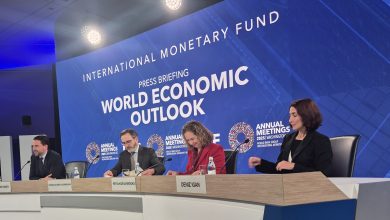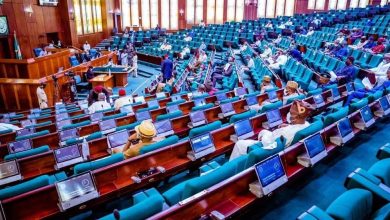CBN: Nigeria’s Foreign Reserves Hit Five-Year High of $43.4bn
Nigeria’s foreign reserves have climbed to a five-year high of $43.4 billion, according to the CBN.
The bank said the surge reflects improved investor confidence and stronger economic stability.
The Central Bank of Nigeria (CBN) has announced that the country’s foreign exchange reserves have risen to a five-year high of $43.4 billion, reflecting stronger market stability and growing investor confidence.
The development was revealed by CBN Deputy Governor for Economic Policy, Mohammed Abdullahi, during the Nigeria Investors Forum in Washington, D.C., held on the sidelines of the IMF–World Bank Annual Meetings. Abdullahi said the reserves, as of October 10, are sufficient to cover 11 months of imports a milestone achieved despite the apex bank’s recent efforts to clear accumulated FX backlogs.
“Our gross reserves currently stand at $43.4 billion, the highest in five years. This growth followed improved liquidity and the successful clearance of FX obligations that once strained the system,” Abdullahi explained.
He added that the naira has remained relatively stable, with the gap between the official and parallel market exchange rates narrowing to below three percent a significant improvement from over 50 percent in 2022. Inflation, he said, has also declined to 18.02 percent, the lowest in three years, while capital inflows and remittances have boosted Nigeria’s external position.
Abdullahi reaffirmed the CBN’s commitment to maintaining orthodox monetary policy, transparent FX management, and close coordination with fiscal authorities to sustain macroeconomic stability.
CBN Governor Olayemi Cardoso, who also spoke at the forum, described the surge in external reserves as evidence of renewed investor trust and the impact of ongoing economic reforms.
“The rise in reserves underscores the results of fiscal and monetary collaboration, stronger FX inflows, and restored confidence in Nigeria’s economic direction,” Cardoso stated. He noted that both the CBN and the Ministry of Finance are working together to strengthen macroeconomic fundamentals, rebuild fiscal buffers, and promote transparency in monetary policy.
Cardoso concluded that Nigeria’s disciplined economic management is beginning to yield concrete results, linking recent growth, lower inflation, and rising reserves to sustained reform efforts.



